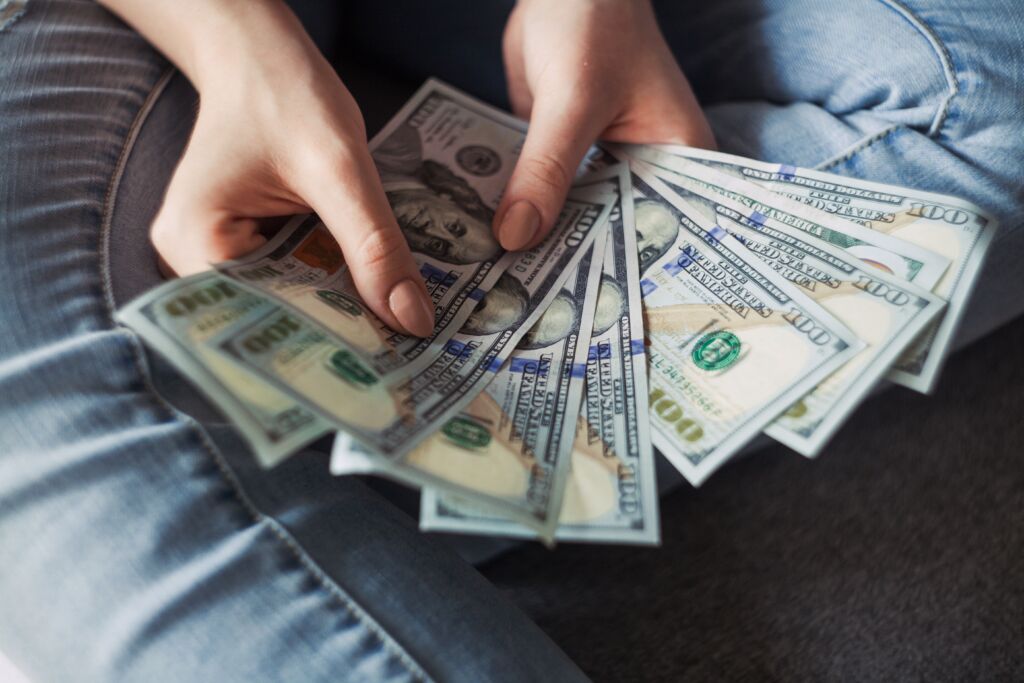Do you feel your student loan debt is holding you back from achieving your financial goals? Forget about all the struggles that come with student loan debt for a minute and take a little mind trip to a debt-free you.
What would you spend your money on, and how would you feel about it? Would you like to start a business, save for a house down payment, or travel more?
Whatever your goals are, paying off your student loans faster will free up money for them. It takes planning, hard work, and sacrifice, but it’s all worth it! Having a solid motivation to get rid of student loans also helps immensely, so take that mental trip to figure out your goals!
But where do you start? Read on to learn the most effective strategies for paying off student loans fast, becoming debt-free, and building your future.
Here Are the Top Strategies for Aggressively Paying off Student Loan Debt
-
Create and stick to a budget that prioritizes loan repayment
-
Pay more than the minimum payment
-
Apply you are windfalls to Ward student loan debt
-
Increase your income with a side hustle
-
Consider student loan financing
-
Check your eligibility for loan forgiveness
-
Ask if your employer offers repayment assistance
-
Make biweekly payments
-
Choose your repayment plan carefully
-
Pay off high-interest loans first
-
Take advantage of student loan discounts
1. Create and Stick to a Budget That Priorities Loan Repayment
One of the first steps you should take to pay off student loans quickly is creating a budget or reviewing your existing one. Think of a budget as your financial roadmap. Just as a roadmap helps you plan your route and reach your destination, a budget helps you plan your spending and reach your financial goals.
A budget allows you to determine how much after-tax income you have, how you spend it, and where you can cut back to increase your student loan payments.
Before you start budgeting, write down the goals you want your budget to help you achieve. This is what will help you stay motivated to stick to your budget.
If you don’t have an emergency fund, one of your budgeting goals could be to start one while making student loan payments. The last thing you want is to get caught up in an emergency that disrupts your ability to make your monthly payment toward your student loan balance.
There are many budgeting methods you can try out depending on how detailed you want to be. However, the overall goal is to visualize your income and expenses and adjust them to prioritize student loan repayment.
2. Pay More Than the Minimum Payment
The smartest and quickest way to pay off your student loan debt is to pay more than your minimum payment. The more you pay each month, the faster you’ll pay off the loan balance. For instance, if you have a $20,000 loan balance with a 4.5% interest rate, paying an extra $200 will cut your repayment period in half.
When you only make the minimum payment, much of it goes to the interest on your loans, meaning you are extending the life of your debt. However, by making extra payments on top of the minimum payment, you can start paying down the principal balance of your loans plus interest, allowing you to pay off your debt faster.
When making extra payments, inform your student loan servicer to apply the overpayments to your current student loan balance. Without your instructions, student loan providers might apply the extra amount to the next month’s payment, which won’t help pay off student loans faster.

3. Apply Your Windfalls Toward Student Loan Debt
One of the smartest financial decisions you can make when trying to pay off student loans faster is to apply any extra funds towards your monthly payment. Remember, how much you pay towards your repayment determines how long it will take to clear it off.
Spending extra money on discretionary expenses such as phone upgrades or dining out can be tempting, but save the extra cash for your student loans.
Extra funds could include any sum of money you weren’t expecting, for instance:
-
Pay raises
-
Income from a side hustle
-
A tax refund or bonus
-
Gifts
-
Found money
-
Work bonuses
-
Tax deductions
-
Inheritance
You can apply extra funds towards your monthly student loan payment in two ways. You can make a lump-sum extra payment, or you can make a regular extra payment each month.
4. Apply Your Windfalls Toward Student Loan Debt
Remember we said paying off student loans fast requires sacrifice? Picking up a side hustle in your spare time may be one of the sacrifices you make to clear your student loans faster, especially if your main challenge is income.
After all, your income determines how much money you can set aside for extra loan payments. The higher the income, the faster you’ll become debt-free.
And you’re in luck because today, there are many options for side hustles. You don’t have to do house-sitting or drive an Uber if you don’t want to. Instead, you can learn a high-income skill, search for online jobs, and earn money without leaving your house. With time, your side hustle may become your primary income source.
Ensure you put all or most of your side hustle earnings into your student loan repayment. Whatever you were living without, you can continue to do so until you clear your student loan debt.
5. Consider Student Loan Refinancing
Student loan refinancing is one of the ways you can lower your debt without making additional payments, but it’s not ideal for everyone. It involves taking out new private student loans with better terms to repay your existing student loans.
An ideal refinancing loan should have lower interest costs than current student loans. By reducing the amount of interest you pay over the life of the loan, you can use that as extra funds to pay off student loans.
However, a lower monthly payment won’t help you clear your debt faster. Instead, it might extend the life of your loans and result in paying more in interest over time. Only consider private loans with a lower interest rate or shorter repayment period to speed up the repayment.
This strategy works best if you have high-interest private student loans. It helps lower student loan interest, monthly repayments, or payment periods. Ensure you compare rates from different lenders and choose the one that offers the best terms. If you refinance your federal loans, you will lose some benefits, such as income-driven repayment plans and loan forgiveness programs.
Examine the new loan terms carefully and read the fine print to ensure you’re getting a better deal, not digging a deeper hole.
6. Check Your Eligibility for Student Loan Forgiveness
It never hurts to see if you qualify for any loan forgiveness programs. They can help you pay off your student loan debt faster by eliminating all or a portion of it. Each program has its own set of eligibility requirements for approval.
Some of the student loan forgiveness programs you should check out include the following:
-
Biden forgiveness plan: You can get up to $20,000 off your federal loan if you have an income of $125,000 or less (or $250,000 if married and filing one tax)
-
Teacher Loan Forgiveness: The program forgives up to $17,500 if you are a full-time teacher at a low-income school or educational service agency
-
Public Service Loan Forgiveness: This program is meant for individuals working in the public service sector who have made 120 qualifying federal student loan payments while working full-time for a qualifying employer. Eligible employers include federal, state, Nonprofits, and local government organizations.
7. Ask if Your Employer Offers Repayment Assistance
Does your employer offer student loan repayment assistance or tuition reimbursement? Ask your HR department or consult your employee manual to find out.
Some employers offer these programs to their employees, and they can contribute up to $5,250 annually toward them. The benefit isn’t a taxable income for you which means you can pay your federal loans and private loans faster if you take advantage of your job.

8. Make Biweekly Payments
Paying every two weeks is a simple and effective way to pay off student loans early. Instead of making one big monthly payment, biweekly payments mean you’ll pay half of your monthly payment every two weeks. This adds up to one extra payment each year, which can help you save big time on interest and get rid of your student loans sooner.
9. Choose Your Repayment Plan Carefully
The best student loan repayment plan will depend on your unique financial situation and goals. Federal student loans provide income-driven repayment plans that base your monthly payments on your income and family size. These plans can help reduce your monthly payments and extend the repayment timeline to 20-25 years.
However, if you want to pay off your student loan quickly and don’t need an extension for your repayment timeline, stick to the default 10-year repayment schedule.
10. Pay Off High-Interest Loans First
If you have multiple student loans, prioritize paying off higher interest loans first. By targeting the loans with the highest interest rates, you can save on interest payments over the long term.
This method is often referred to as the “debt avalanche” approach, where you focus on paying off the debt with the highest interest rate first before moving on to the next highest interest rate loan. By consistently applying extra payments to the high-interest loan, you can save thousands of dollars in interest payments and pay off your student loans as soon as possible.
11. Take Advantage of Interest Rate Discounts
Interest rates play a crucial role in determining the total cost of student loans and the time it takes to pay them off. If you reduce the interest rates, you can lower your total loan payment and payment period.
Some lenders offer an interest rate discount if you set up automatic payments. You may also get discounts for meeting other criteria, so if you have private student loans, ask for more information on interest rate reductions and discounts. You can also enquire from federal student loan servicers.

Student Loan Payment FAQs
Is there a benefit to paying off student loans early?
Yes, there is a benefit to paying off student loans early. Paying off student loans early saves on the interest paid, reduces the total loan amount, improves credit score, and frees funds for other financial goals. It can also reduce the stress and anxiety associated with student debt.
What is the fastest way to pay down student loans?
The fastest way to pay down student loans is to make larger payments. This might require increasing your income via a side hustle, utilizing windfalls, enrolling for employee student loan repayment assistance, cutting back on your discretionary spending, etc.
How long should it take to pay off student loans?
The time it takes to pay off student loans depends on several factors, such as the loan amount, interest rate, repayment term, and monthly payment amount. On average, it can take 10-30 years to pay off student loans. However, if you use smart strategies, such as making extra payments, refinancing, and adjusting your budget, you can help significantly reduce that timeline.
Is it smart to pay off student loans early?
Paying off student loans early can be smart because it reduces the total interest paid. It can also free up more funds for other financial goals.
However, depending on your situation, you should weigh the benefits against other priorities. For example, if you don’t have an emergency fund, start one before making extra payments on student loans. If you have other high-interest debts, such as credit card debt, you might want to start there.
What is the best way to pay off multiple student loans?
The best way to pay off multiple student loans is to prioritize paying off the loan with the highest interest rate first while making minimum payments on the other loans. Another great strategy is student loan consolidation which can make monthly payments more manageable and potentially lower your interest rates. For consolidation, consider the terms and conditions carefully, weigh the pros and cons, and check out different lenders before making a decision.
Why is it so hard to pay off student loans?
Paying off student loans can be challenging for many people because of high debt, limited income, and higher interest rates. However, with a few smart personal finance strategies like budgeting and making extra payments, you can pay off your student loan early, even without a high income.
How can I avoid interest on student loans?
The best way to avoid interest on student loans is to pay off the date as soon as possible. You can also take advantage of interest rate discounts by setting automatic payments. Refinancing with a lower interest rate can also reduce interest charges.
Do student loans go away if you don’t pay them?
No, student loans do not go away if you don’t pay them. Failure to pay student loans may result in default status, which can have serious consequences such as wage garnishment, loss of tax refunds, and a negative impact on your credit score. Always keep up with loan payments or seek alternative options, such as repayment programs.
How much should I save before paying off student loans?
The amount you should save before paying off student loans depends on your financial situation and future goals. Personal finance experts recommend having at least 3-6 months of living expenses saved in an emergency fund before committing to aggressively paying off student loans.
- Tags:
- retirement
- student loans








